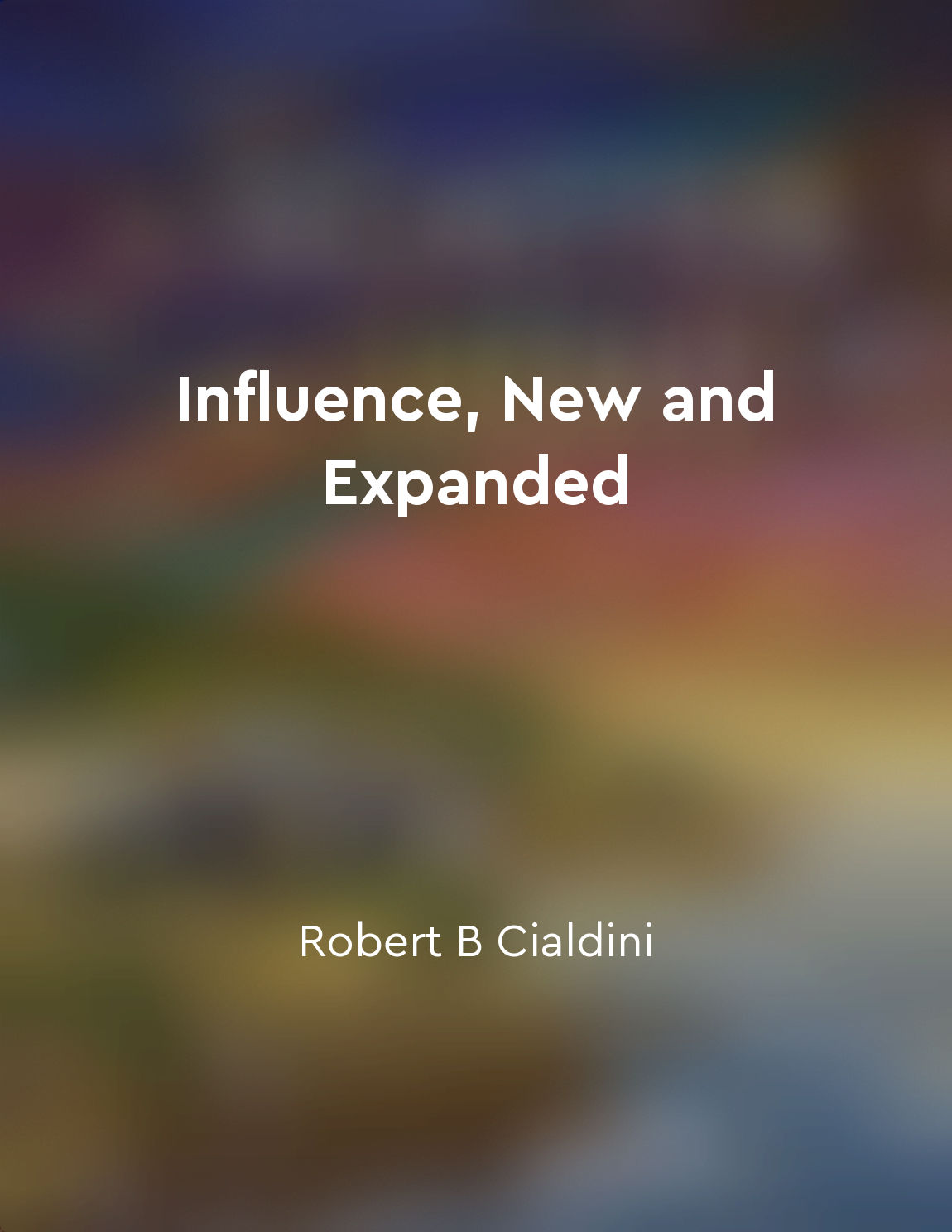Authority figures can sway opinions from "summary" of Influence, New and Expanded by Robert B Cialdini
Authority figures possess a potent ability to influence and shape the opinions of others. Whether it be through their expertise, position of power, or perceived credibility, these individuals hold a significant sway over how people think and behave. This influence can be especially impactful when individuals are uncertain or unfamiliar with a particular subject matter. In such cases, people are more likely to defer to the judgment and guidance of those in authority, trusting that their opinions are based on knowledge and experience. The power of authority figures to sway opinions can be seen in a variety of settings, from the boardroom to the classroom. In business, for example, the endorsement of a respected industry leader can make or break a product or service. Consumers are more inclined to trust and support offerings that have been vouched for by someone they perceive as an expert or influencer in the field. Similarly, in educational environments, students are likely to adopt the views and beliefs of their teachers and professors, viewing them as knowledgeable authorities whose opinions should be respected and followed. One of the key reasons why authority figures are so effective at swaying opinions is the tendency of individuals to rely on mental shortcuts or heuristics when making decisions. In situations where time and information are limited, people often use cues such as authority status to guide their choices. This can lead to automatic and unconscious compliance with the opinions and directives of those in positions of power, even if they may not necessarily be the most informed or accurate. It is important to recognize the influence that authority figures can have on our beliefs and behavior, and to approach their opinions with a critical eye. While expertise and experience are valuable qualities, they are not always synonymous with truth or correctness. By being aware of the power dynamics at play and taking the time to evaluate information independently, we can guard against being unduly swayed by authority figures and make more informed decisions based on evidence and reason.Similar Posts
Leveraging emotions can make ideas more contagious
When we tap into people's emotions, we can make our ideas more contagious. Emotions play a crucial role in shaping our behavior...
Our choices reflect our values and identity
The decisions we make are more than just practical choices; they are reflections of who we are as individuals. Each choice we m...
Develop charisma and confidence for persuasive communication
To effectively persuade others, it is essential to develop charisma and confidence in communication. Charisma is the ability to...
Seeking feedback is a valuable tool for improvement
One of the most effective ways to improve oneself is by seeking feedback from others. Feedback is like a mirror that reflects o...
Framing arguments effectively is necessary
To persuade and influence others successfully, it is crucial to frame arguments effectively. This means presenting your ideas i...
Recognize the signs of manipulation in any situation
Manipulation is a common tactic used by people to get what they want, often at the expense of others. It involves subtly influe...
Building credibility through expertise and integrity
The key to persuading others is to establish yourself as a credible source of information. One way to do this is by demonstrati...
Emotions play a crucial role in decisionmaking
In the realm of decision-making, emotions wield a significant influence, often playing a pivotal role in the choices individual...

Mirroring body language can establish rapport quickly
When we talk about establishing rapport quickly, one technique that can be highly effective is mirroring body language. This co...
Authority figures can sway opinions
Authority figures hold a powerful influence over people's opinions and decisions. This influence is rooted in the inherent tend...

